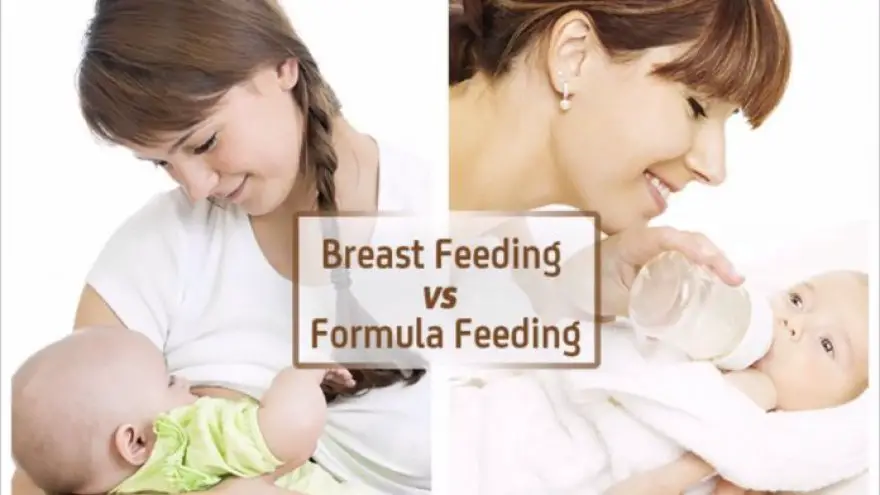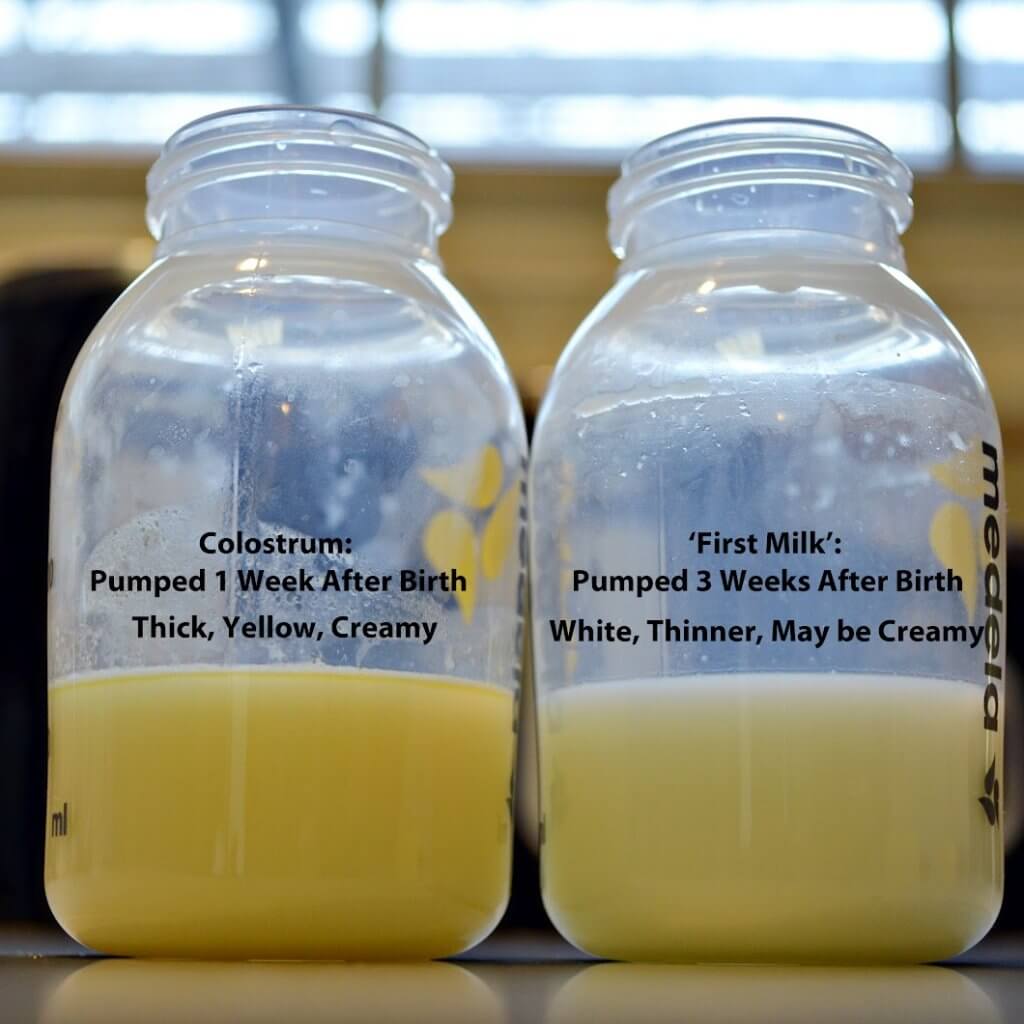To Breastfeed or Bottle Feed: Important Aspects to Consider

Before the baby is born, most mothers are already thinking about whether they are going to breastfeed or bottle feed. This decision is one of the most important choices a mother can make for the life of their child, as it determines their sole source of nutrition for the first couple of months of their lives.
It is a big responsibility for mothers to consider since babies cannot make this choice for themselves, mothers need to make sure they are doing the best possible thing for their babies. Although there are pros and cons to both, most research indicates that breastfeeding is the healthier option for most women and children. These are a few reasons why:
Colostrum

Colostrum is the first milk your body produces during pregnancy and just after birth. It is often called “liquid gold” due to being thick in consistency and yellow in color as well as its nutritional function, and also because it is different than the milk produced regularly.
Colostrum is rich in antibodies that babies need as newborns and also contains lots of essential nutrients needed to strengthen and build many bodily systems. According to “womenshealth.org”, it helps newborns with the growth and function of their digestive system as well as protecting them from infections and other diseases.
Many medical professionals also attribute colostrum with reducing the risk of sudden infant death syndrome. The benefits of milk do not stop at the early stages however. As the baby grows, the milk our bodies produce changes in accordance to their needs. Many women have testified to produce thicker milk reminiscent of colostrum when their baby is sick.
Mature milk is thinner than colostrum and it contains all the sugars, fat, and proteins babies need in their development. Research shows a significant reduction in the development of diseases like asthma, type 2 diabetes, ear infections, lower respiratory infections, just to name a few. Although the formula has a lot of similar components, it is a “one fits all” as opposed to the unique and ever changing nature of breast milk.
The cost of formula

Most formulas are made with cow milk which is harder for babies to digest and takes a while to get used to. Cow milk is known for containing pesticides and added hormones so you have to be mindful of the importance of feeding your child organic products at least during the first months of life.
The presence of cow milk can result in upset stomachs, colic, and other unnecessary digestive problems. Another reason formula can be potentially harmful to babies is because of the inclusion of GMO’s that act as toxins in many of their ingredients. According to “gmoinside.org”, the presence of GMOs in formula can be toxic and harm babies and their underdeveloped livers.
Michelle Perro, M.D, says that if you expose newborns to ingredients that damper liver and immune function, the infant has a higher risk of ill effects. Besides the health costs of formula, the monetary cost can also take a toll on the bank. Formula is pricey, especially those that are advertised to be healthier for your baby. The amount of formula babies are required to consume increases as they grow up, meaning the amount you spend on formula increases over the years as well.
It is also important to consider that formula is not the only thing you have to buy if you decide to bottle feed. The cost of sterilizers, nipples, and bottles can add up. Specialized bottles may also need to be bought for babies that have a harder time drinking out of regular ones, as well as ones designed to reduce colic. These specialized bottles can be more expensive.
All of these extra expenses can be a budgetary issue for some families and it is easy to see why breastfeeding would be the economical alternative. Free is always better, especially when what you buy off stores is not up to par to your babies specific health needs.
However, if you are one of the women that chooses to formula feed, it is important to be aware of the ingredients listed in order to choose something that is closest to natural milk, as well as staying away from those that contain GMO’s.
The practicality of breastfeeding

With the chaos, stress and sometimes unorganization that comes with bringing a baby into the world, breastfeeding can make your life a little easier. You can breastfeed anytime anywhere without taking the extra step to sterilize bottles, measure, mix the formula, and warm up the milk. Not only does breastfeeding reduce waiting time for the baby and the mother, but all of the extra supplies needed in order to formula feed also have the ability to add clutter to the home.
The arrival of a new human into your home means more things to organize and clean which can often be overwhelming especially for new mothers. Breastfeeding reduces late night trips to the grocery store for formula or new bottles, or during any time of the day really. This adds time to your busy schedule as well as help reduce stress. Breastfeeding is not only a practical way to save you time, but it is also a practical way to benefit the environment.
If you are someone that is environmentally conscious and aware, it is important to remember that buying formula, bottles, and nipples increases your carbon footprint as it all eventually ends up in a landfill.
Intimacy
The intimacy created through breastfeeding helps bond the mother and child especially in the early stages where it is the most important because it creates a special and lasting connection.
Skin to skin contact increases oxytocin which is a feel-good hormone responsible for the healthy flow of breast milk, according to “womenshealth.org”, as well as having a calming effect on the mother and child alike. This hormone can also encourage feelings of trust and safety from the baby. Breastfeeding also creates warmth due to the body heat transferred from the skin to skin contact that babies that are bottle fed tend to miss out on. For many mothers, this is the deal breaking factor that pushes them over to the breastfeeding side, and it is easy to see why. It is often considered the moment in which the “motherly instinct” kicks in.

It seems like the ongoing war between breastfeeding vs bottle feeding is never ending. In reality though, there should never be a competition in the first place because everybody has individual and specific needs. Although breastfeeding is the healthier option, not all women are able to do it due to a multitude of reasons whether lifestyle or health related, and that is absolutely okay.
Many babies who have been formula fed grow up to be healthy children and adults. Formula has a lot of essential building blocks needed for the development of your child, you just have to find what works best for you and your baby. If you are someone who has the ability to breastfeed however, and is still on the fence about it, it is important to remember that your bodies ability to nurture your child goes beyond anything you can buy off a shelf.







